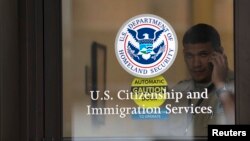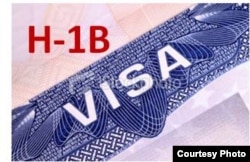The United States has announced changes to its nonimmigrant work visa policies that are expected to make renewals more difficult.
In the past, U.S. Citizenship and Immigration Services would generally approve the renewals unless the visa holder had committed a crime. Now, renewals will face the same scrutiny as the original applications.
"USCIS officers are at the front lines of the administration's efforts to enhance the integrity of the immigration system," USCIS Director L. Francis Cissna said, according to the announcement posted on USCIS' website this week. "This updated guidance provides clear direction to help advance policies that protect the interests of U.S. workers."
The new regulations could affect more than 100,000 people holding at least eight different types of work visas who fill out the I-129 form for renewals.
Sam Adair, a partner at the Graham Adair business immigration law firm in California and Texas, said that for the most part, he expected visa holders would most likely face lengthier adjudication periods in their renewal processes, as opposed to increased numbers of denials.
"I don't think it's going to be a big shift for us," Adair told VOA. "But I think what we'll see is just an increase in the number of requests for evidence, an increase in the delays on the adjudication of these petitions, and really it's going to just result in more costs for the employers who are filing these petitions."
'High-skilled' workers
Of all visa holders affected by this policy, those in the United States on an H-1B, a visa for "high-skilled" workers, are the biggest group. Of 109,537 people who had to submit I-129 forms in fiscal 2017, 95,485 were H-1B holders, according to data sent to VOA by USCIS.
H-1B visas have been threatened in the past, most recently by a bill proposed this year that would have raised the minimum salary requirement for workers brought in on the visa. While advocates of the program argued that it would keep workers from being exploited, many H-1B holders feared that businesses would be less willing to hire them or keep them on board.
But some Americans support the new regulations, saying that nonimmigrant work visas hurt American workers.
"It's prudent to make sure that the people that receive those visas are in complete compliance with all of the requirements," Joe Guzzardi, national media director of Californians for Population Stabilization, told VOA.
"It just isn't possible to think that there aren't American workers that couldn't fill these jobs," he said, noting that while the regulations might hurt businesses, they would help Americans looking for work.





